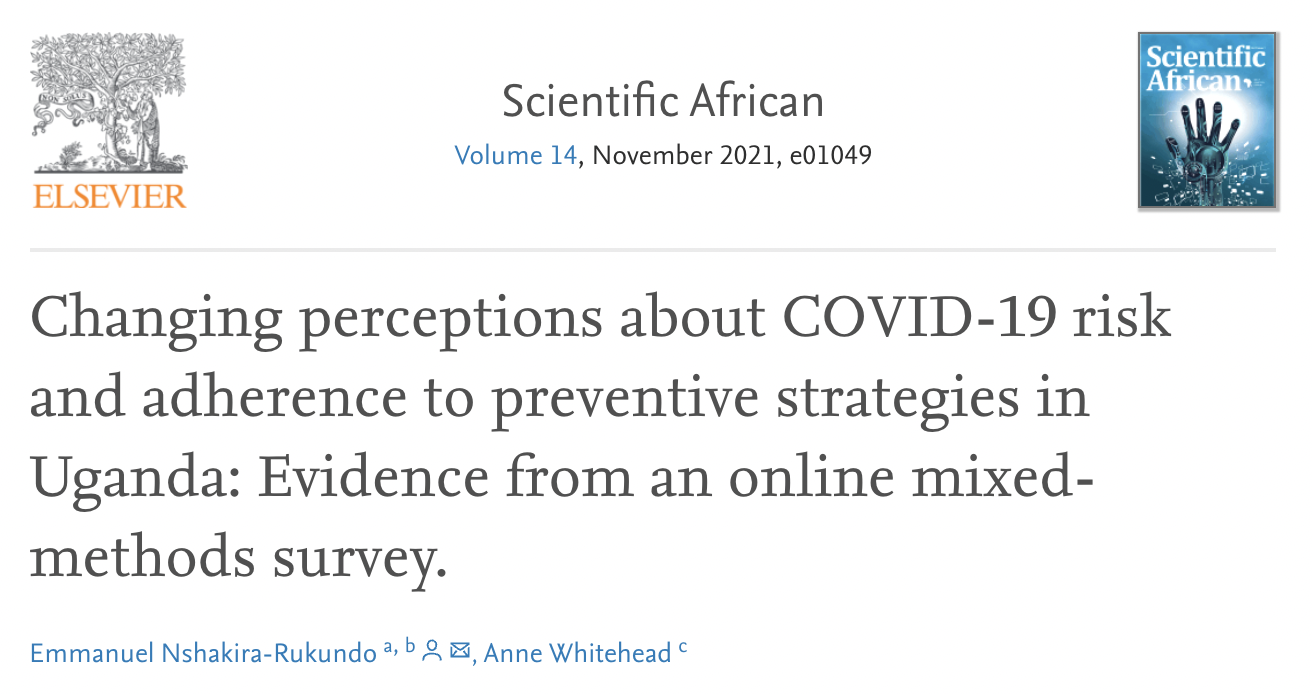In 2020, Whitehead Communications conducted a national public opinion survey in Uganda on the impact of COVID-19. Development economist and Post-Doc at the University of Bonn in Germany, Emmanuel Nshakira-Rukundo, reached out and offered his expertise in further modelling the data to determine how different factors affect Ugandans' adherence to public health restrictions and how seriously they take the pandemic.
Near the end of 2021, a co-authored paper detailing our results was published in the academic journal Scientific African.
AbstractSince the COVID-19 pandemic started, countries have enacted a series of non-clinical preventive mechanisms aimed at slowing the rate of spread. However, these mechanisms can be effective only when they are correctly followed and only when individuals believe the risk of COVID-19 is high enough to warrant following them. As risk perceptions decline, individuals are more likely to relax following preventive measures and the rate of spread might increase. This study assesses the determinants of changes in perceptions of COVID-19 risk and the determinants of adherence to preventive measures in Uganda. Logistic regression results show that age, access to information and being supportive of preventive measures strongly predicts keeping higher risk perceptions and adhering to preventive actions. Qualitative results show that risk perceptions are also influenced by economic stress, citizens’ level of confidence in the government, local political climate and the extent of proliferation of misinformation about COVID-19.
You can read and download the full paper here.


